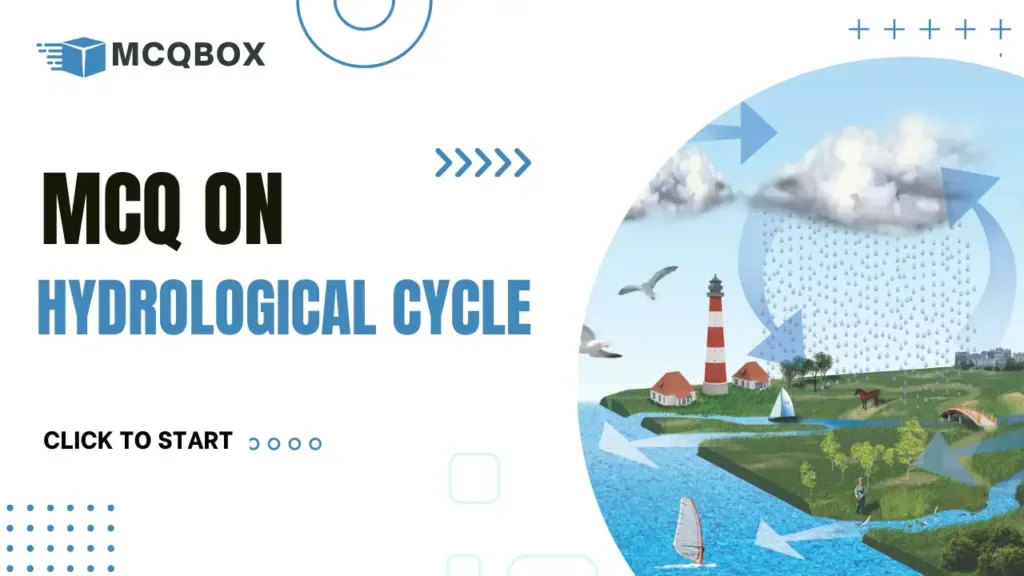Test your knowledge with this challenging MCQ on Hydrological Cycle! Get ready to learn and level up your understanding of the world around us. This topic is useful for the students Class 9th to 12th and for those preparing for Competitive Exams like UPSC , SSC and other State Level Exams

Table of Contents
MCQ on Hydrological Cycle
1. What is the ultimate source of energy that powers most of the evaporation on Earth?
a) Geothermal energy
b) Wind energy
c) Solar energy
d) Nuclear energy
Answer: c) Solar energy
2. In which stage of the water cycle do water droplets merge to form clouds?
a) Evaporation
b) Sublimation
c) Condensation
d) Precipitation
Answer: c) Condensation
3. What happens to water droplets when the air temperature drops below freezing point during precipitation?
a) They evaporate
b) They condense into clouds
c) They form aquifers
d) They freeze and fall as snow or hail
Answer: d) They freeze and fall as snow or hail
4. How does runoff contribute to the formation of icecaps in colder regions?
a) By evaporating into the atmosphere
b) By infiltrating into the ground
c) By flowing down the sides of mountains and hills
d) By melting glaciers
Answer: c) By flowing down the sides of mountains and hills
5. Which of the following is NOT a stage in the water cycle?
a) Runoff
b) Melting
c) Infiltration
d) Erosion
Answer: d) Erosion
6. What role does the water cycle play in cleaning the air?
a) By emitting pollutants into the atmosphere
b) By trapping dust particles in clouds
c) By absorbing pollutants from the atmosphere
d) By causing acid rain
Answer: b) By trapping dust particles in clouds
7. What process occurs when water molecules at the surface of water bodies become excited and rise into the air?
a) Sublimation
b) Evaporation
c) Condensation
d) Infiltration
Answer: b) Evaporation
8. Which of the following describes the process where snow or ice changes directly into water vapor without becoming liquid?
a) Condensation
b) Melting
c) Sublimation
d) Precipitation
Answer: c) Sublimation
9. What happens to water vapor when it cools down due to low temperatures found at high altitudes?
a) It evaporates
b) It condenses into clouds
c) It sublimates
d) It melts into water
Answer: b) It condenses into clouds
10. How do water droplets form in the atmosphere during condensation?
a) By freezing into ice crystals
b) By merging with dust particles
c) By evaporating from the ground
d) By sublimating from solid to gas
Answer: b) By merging with dust particles